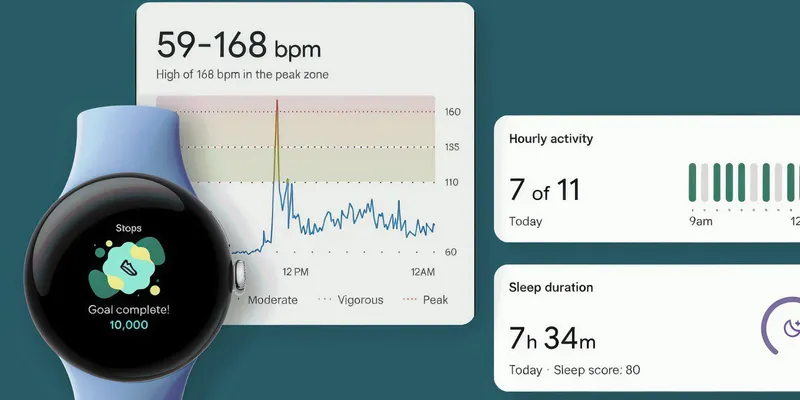Whether we like exercise or not I think we have all heard that exercise is good for us, we may have even experienced the benefits. However it seems rare for the advertisers to tell us anything other than the weight loss benefits and what with the weight epidemic that we have in the 1st world it is no wonder that this is their gold mine. But let’s look beyond this and see what our minds gain from the working out.
What happens to our body during exercise?
If we can understand what happens to our body when we exercise we can start to understand how this can help our mental health.
Increase in heart rate and breathing
During exercise causes more oxygen rich blood to our muscles and we breathe more deeply and faster to get the oxygen to where it is needed. This is possibly where the saying “blowing away the cobwebs” comes from as it will really help us to feel awake and obviously the more we exercise the stronger our cardiovascular system becomes.
Muscles warm up
Allowing them to become more flexible and possibly helping to reduce the aches and pains we get from too much sitting or even too much repetitive manual work.
Increased energy expenditure
Which helps with fat loss as the body starts to break down our stored fat as an energy supply.
Release of endorphins
Exercise produces the feeling of happiness and pleasure. I realise that there will be some of you that don’t believe me, especially if you find exercise hard but we can look at this in more detail later.
Sweating
This helps reduce our body temperature whilst we exercise and it also has the benefit of removing toxins from our body.
Increased metabolism
With regular exercise our muscles adapt and grow. As they are one of our largest energy users in our body they increase our energy use or metabolism.
Strong muscles and bones
I think we all know about exercise and that it increases out muscle size but it can also increase our bone density and help prevent injury or conditions like osteoporosis.
Enhanced cognitive function
Things like focus, memory and overall brain functionality are improved by increasing blood flow and brain-boosting chemicals. Yes exercise can make you more cleverer!
Reduce stress and anxiety
Mental health is aided by the release of the aforementioned feel-good hormones, but also by keeping us present with the task at hand, distracting us from negative thoughts, both past and present.
Better sleep quality
Exercise can improve your sleep quality and the duration of sleep by using up energy we get from our food and by strengthening the sleep cycle.
How does exercise specifically help mental health?
If we take what we have learned from what happens to our body during exercise and focus on the ones that can directly benefit our mental health, I believe we have the following benefits:
- It is a stress reliever and therefore helps to improve our mood thanks to those feel-good hormones that get released
- It can aid our emotional resilience by helping to clear up built-up tension, clearing the mind and providing a distraction from your worries.
- It can boost our brain health and cognitive function by promoting the growth of new brain cells and strengthening neural connections.
- It is possible that it can enhance self-esteem and body image gets improved after a lifestyle change that includes regular exercise. As we use our body fat stores as energy, we start to reduce our total body fat, and as the muscles grow, we increase our metabolic rates, turning us into an energy-burning machine. If we feel happy in our body, we can feel more confident to take life in our stride.
- Improve our sleep by improving our natural sleep-wake cycle, releasing tension and promotes relaxation. We will always sleep better if our minds are clear.
Feel good hormones
These have been mentioned a couple of times already and they do feel like they are the main benefit to our mental wellbeing. So what are they and how do we get more of them? When we exercise several of these hormones get released and the main ones are endorphins, serotonin, dopamine and oxytocin.
Endorphins
These are natural painkillers and mood boosters that get released during exercise. When you exercise, these endorphins get released in response to the physical stress, helping to reduce the perceived pain and discomfort, allowing us to continue with the exercise for longer. For this to work, we need a level of exercise that pushes us beyond a comfortable level, where we can only maintain it for relatively short bursts.
Serotonin
Serotonin helps regulate mood, sleep, and appetite, which even I can see the benefit of this hormone to our mental health. Exercise increases levels of serotonin, leading to improved mood, reduced stress, and an increase in motivation.
Dopamine
This is a neurotransmitter that is associated with pleasure and reward. Exercise increases our dopamine levels leading to enhanced motivation, focus and a sense of achievement. It is also involved with learning and memory and is thought to play a role in regulating mood. Low levels of Dopamine are associated with depression and some medication used to treat depression work by increasing dopamine levels in the brain. Sign me up for exercise over drugs!
Oxytocin
Turn up the volume on your Barry White album, as this hormone is often referred to as the "love hormone". As you can probably guess, oxytocin is released when we exercise and promotes feelings of bonding, trust, and social connection. This hormone has also been linked to improving mental health by reducing stress and anxiety.
What exercise is best for improving your mental health?
There are almost a million and one adverts and marketing campaigns that will tell you that their product is the all-singing, all-dancing gift to your weight-loss problems. The simple fact is that you can lose weight and (in my opinion) more importantly improve your mental health with absolutely no equipment at all. The only reason that the equipment exists is to keep your routine varied, challenging, and interesting. If you keep the same routine and don’t change it, your body will get used to it as well as your mind. You will get bored of it, and your body and mind will stop seeing the improvements you are hoping for. So, to keep your mind and body challenged, you should try and follow these basic rules:
Regular aerobic exercise
Taking part in activities like running, swimming, cycling or brisk walking at least 3 times per week will help boost those all important hormone levels. Top tip: if there is a particular exercise that you don’t like it is probably because you find it the hardest. Guess what? The harder you find it the bigger the boost in hormones and helping with weightloss
Moderate to high intensity
It is very important to exercise at a level that challenges you without over exerting. You can use a heart rate monitor and check with your local health professional at what level will be safe for you to train at.
Variety is the spice of life
Like I previously mentioned, it is really important to regularly change your routine. Surprising your body will help you get the most from your exercise. A general tip is that if you find it hard, it will be doing more for you than if you start finding it easy.
Consistency
Regular exercise, rather than sporadic bursts of activity, is more effective for your mental wellbeing. So, it is really important to find activities that you will do and maintain, over challenging activities that you might give up on.
Social activities rule
Incorporating group activities, team sports, or exercising with friends can be even better as you will increase oxytocin levels even more, thanks to the social aspect. Team sports are also great because you end up being so focused on the game and the score that you forget that you are getting all these benefits from the exercise. Not a bad outcome, really.
Summary
Exercise is great for your mental health but it is important to listen to your body, set realistic goals and find activities that you enjoy to maintain a consistent exercise routine. This should be a lifestyle change that you can stick to so that you can maximise all the benefits.












